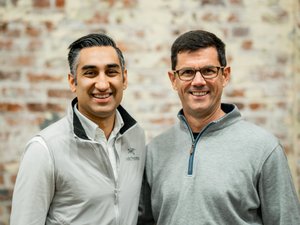
Long-term customer engagement is fundamental to winning in the marketplace, and it starts with a great product.
In this era of big tech companies outperforming the stock market with ever-increasing valuations, it's easy to misconstrue the reasons behind their successes. New entrepreneurs hear the cliché that "software is eating the world," and they assume that technological advantage and superior engineering are the keys to becoming the next unicorn.
While these components are undoubtedly critical, they're not what define market leaders.
The smartest companies understand that customers don't buy technology; they buy products. No amount of investment in engineering, sales or marketing can offset a poor product experience; as Y Combinator President Sam Altman has observed: "Until you've built a great product, almost nothing else matters."
Product is paramount
Companies that fail to deliver outstanding product experiences struggle to retain users. People are busy, and if a brand doesn't provide value, they'll find an alternative that does. Long-term user engagement is fundamental to commercial success, and recent history is littered with examples of companies that grew quickly through aggressive acquisition tactics but failed to build sustainable bases.
Homejoy is a good case in point. The home cleaning startup raised upward of $64 million from top Silicon Valley investors, generating initial customer interest through promotional offers and promises of great service. But Homejoy didn't live up to its own hype. Users characterized the service as "hit or miss," and less than a quarter of customers booked second cleanings. Because of its poor retention rates, Homejoy's high customer acquisition costs were never offset, and the company soon folded.
Stories like Homejoy's provide a cautionary tale, and there are many of them. Today's most influential CEOs have learned from such mistakes and emphasize product over tech or engineering. Slack CEO Stewart Butterfield articulated this in his now famous internal memo in which he wrote: "Even the best slogans, ads, landing pages, PR campaigns, etc., will fall down if they are not supported by the experience people have when...they first begin using the product and when they start using it day in, day out."
Losing users means lost revenue. It's far more expensive to acquire new customers than it is to retain (and monetize) existing ones, and customer retention is good for profits. A five percent increase in customer retention rates increases profits by anywhere from 25 to 95 percent. Although customer retention is influenced by a variety of factors, the quality of the product experience is at the core of customer satisfaction.
Defining and building a product-led company
What does leading with product look like? Nothing is more valuable to product-led businesses than consumer advocacy, and it takes an exceptional user experience to inspire that kind of goodwill.
Ben Thompson, a thought leader in technology strategy, is adamant that the user experience is the key differentiator in today's market. His flagship concept, Aggregation Theory, posits that "the best distributors/aggregators/market-makers win by providing the best experience, which earns them the most consumers/users, which attracts the most suppliers, which enhances the user experience in a virtuous cycle."
Product-led companies have a strong product vision coupled with high standards and a drive toward innovation. When they make new hires, they hire individuals who share a product-first mindset, aligning everyone on the team around a shared vision.
Being product-led also means that your business vision mirrors your customers' needs. This vision should inform every decision you make, from the very outset of the company's formation.
Steve Jobs embodied his belief that Apple needed to "start with the customer experience and work backwards to the technology." He knew that many companies had superior technology and still lost in the marketplace. It was Apple's unique customer experience that drove its incredible successes.
More specifically, product-led companies prioritize the answers to these questions:
• Who is your customer? (Hint: It's not everyone.) • What outcomes are they looking to achieve? • Why are they dissatisfied with their current options? • How does your product help them achieve the outcomes they desire?
Without knowing the right answers to these questions, it's impossible to lead with product.
Have you yourself ever retained a product that didn't solve a problem for you? Likely not. No amount of investment in sales, marketing, tech or talent will substitute for a failure to deliver a relevant, standout offering. Long-term customer engagement is fundamental to winning in the marketplace, and customer engagement starts with a great product — meaning companies must start there, too.
Travis Parsons is the founder & CEO of Castle Digital Partners, a venture services firm operating as a partner and investor in its portfolio businesses, which focus on software-as-a-service, digital commerce and tech-enable services companies.








